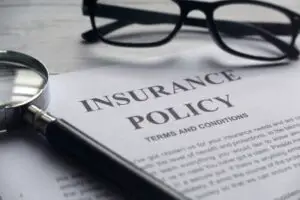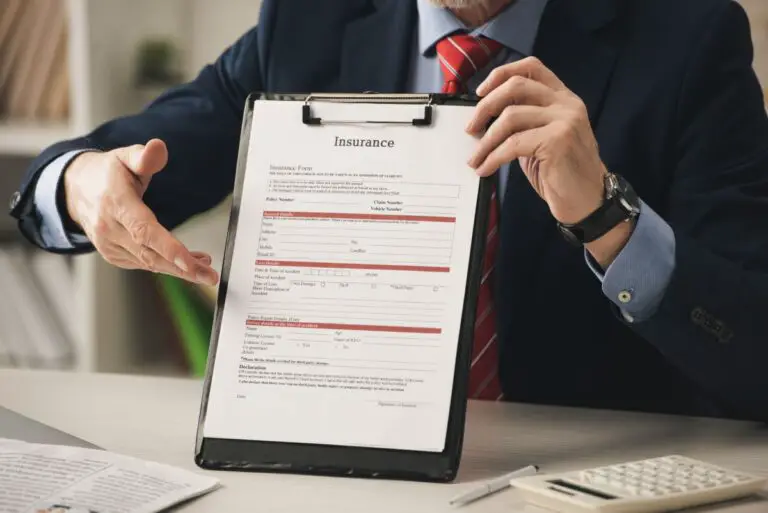For quite a few years there has been a common misconception about becoming an insurance agent. The misconception is that to work as an insurance agent, you must first have a college education. There are special requirements and that is you will need a high school diploma or GED and an insurance license from your state. The licensing rules vary by state, but most states want you to take a course and pass their licensing exam.
What Are The Prerequisites For Being An Insurance Agent?
Most people would anticipate that occupation with such a high potential for financial gain would have a high entry barrier, but this isn’t the case with insurance. There are few requirements to becoming an insurance agent, as opposed to many other potentially lucrative professions.
- There are just two set markers that a person must accomplish to become an insurance producer:
- One is passing the necessary licensing exams and completing a background check.
- While many insurance agents have prior sales experience and have earned a college education.
- You can become an effective insurance producer with only a high school diploma is feasible.
However, without a bachelor’s degree or relevant experience, it can be an unconquerable roadblock to obtaining employment. Taking the effort and getting licensed without prior expertise demonstrates the initiative that many employers like.

Are There Insurance Pre-Licensing Courses and Exams?
As we have previously said, obtaining an insurance license entails finishing the proper training and passing the required examinations. Some states demand that students complete an authorized course and obtain certificates of completion, while other states allow students to learn on their own at their leisure.
- The insurance agent licensure procedure is set forth by state law, which means that the essential examinations and details vary from state to state.
- This procedure ensures that you are receiving the correct information and have a firm grasp of the subject matter.
- It is important to take insurance pre-licensing courses in your state.
The quality of your pre-licensing education can have a significant influence on how well you grasp:
- The material
- How well did you do on your test?
- How many times you must take it.
There are a few programs that provide online video pre-licensing courses for several jurisdictions. These courses are taught by insurance industry veterans.
- They give students the knowledge it takes to help students study for their insurance licensing exams.
- This will allow them to master the essential information.
- These video classes are to be completed at home.
- This will give you more flexibility in terms of when and where you study.
Make sure to schedule your test appointment ahead of time by calling the agency that administers exams in your state, finding a scheduled insurance licensing examination date that works with your schedule, and then taking the exam once you’ve completed the required pre-licensing courses and have a basic understanding of national and state insurance laws.
What To Do After the Examination?
After you have completed the state’s required insurance licensing examinations and received your license from the state, you are allowed to sell insurance in your state. It is up to you what you do after that! For most new insurance agents, becoming a member of an agency is usually their first choice.
- Like any profession, looking for a job entails submitting your CV to any organization.
- After putting in the work you will eventually be hired by an insurance company.
- Just like all job searches, making yourself as appealing to a candidate as possible assists the odds of being hired sooner rather than later.
Remember to:
- Spend time honing your resume
- Obtaining letters of recommendation from reliable sources
- Round-up past professors, prior employers, or other appropriate mentors and authority figures to act as references for your new employer.

What is the Purpose of an Insurance License?
After you have completed the pre-licensing courses, studied for the exams, and obtained your insurance license, it is time to start your new career. The primary purpose of an insurance license is to grant the authority to sell different types of insurance in your state.
- Insurance licenses are granted by the state in which you will be selling insurance.
- There are different types of insurance that you are allowed to sell are dependent on the state in which you are licensed.
For example, if you are licensed in Texas, you would be able to sell property and casualty insurance, but not life and health insurance.
What Are The Courses Needed To Become An Insurance Agent?
Attending the appropriate insurance training courses may make all the difference between landing a position with a major national agency and not receiving a state license to sell insurance. Most insurance agents make a median yearly salary of more than $50,000. If you want to be a successful agent, there are a few courses to consider that may assist you in your professional career.
Insurance Agent Licensing Courses
This is not a full list it can vary per state. Here are some of the courses required to take to get your insurance license:
Life and Health
- Insurance Licensing is regulated by the state government.
- Each state establishes its insurance licensing requirements and examination procedures.
Property And Casualty v
- In the United States, to sell property and casualty insurance.
- Every candidate must pass an entry-level test that covers basic insurance principles, insurance laws and provisions, and contract law.
Adjuster Licensing
- Are you thinking of becoming an adjuster? Every state has its adjuster standards and testing procedures.
Are You Interested In Growing Your Revenues With Ancillary Business Offerings?
According to studies, companies that provide three or more services to their clients are more likely to retain them for longer than those that offer just one service. As a result, you may increase your income by offering one or more of the services listed below:
Flood Insurance
- Flood insurance covers the physical damages caused by rising waters.
- It is important to remember that most standard homeowners insurance policies do NOT cover flood damage.
- If you live in a high-risk area, it is recommended that you purchase a flood policy.
Home Insurance
- Home insurance, also known as homeowner’s insurance, is a type of property insurance that covers a private residence.
- The coverage provides financial protection against physical damage and personal liability arising from incidents in the home.
- A typical home policy will cover damages caused by fire, wind, hail, water leaks, and theft.
Health Insurance
- Health insurance is a type of insurance that covers the cost of medical care.
- It can be purchased as an individual policy or through an employer-sponsored group plan.
- Health insurance plans typically cover hospitalization, prescription drugs, and doctor visits.
- Some plans also cover preventive care, such as vaccinations and screenings.

Auto Insurance
- Auto insurance is a type of insurance that covers the cost of damages to your car, as well as liability for injuries and property damage caused by an accident.
- Most states require drivers to purchase auto insurance, and there are many different types of coverage available.
- Common coverages include collision, comprehensive, liability, medical payments, and personal injury protection.
Business Insurance
- Business insurance, or commercial insurance, is a type of insurance that covers the cost of damages to your business, as well as liability for injuries and property damage caused by your business.
- There are many different types of coverage available, and the specific coverages you need will depend on the type of business you have.
- Some common coverages include property, liability, workers’ compensation, and product liability.
Life Insurance
- Life insurance is a type of insurance that covers the cost of death or dismemberment.
- It is typically purchased as a way to financially protect loved ones in the event of the policyholder’s death.
- There are many different types of life insurance policies available, and the specific policy you need will depend on your individual needs.
- Some common types of life insurance policies include term life, whole life, and universal life.
Disability Insurance
- Disability insurance is a type of insurance that covers the cost of lost income due to disability.
- It is typically purchased as a way to financially protect yourself and your family if you are unable to work due to an injury or illness.
- There are many different types of disability policies available, and the specific policy you need will depend on your individual needs.
- Some common types of disability policies include short-term disability, long-term disability, and income replacement.
Long-Term Care Insurance
- Long-term care insurance is a type of insurance that covers the cost of long-term care services.
- It is typically purchased as a way to financially protect yourself and your family if you need extended care due to an injury or illness.
- There are many different types of long-term care policies available, and the specific policy you need will depend on your individual needs.
- Some common types of long-term care policies include nursing home care, home health care, and community-based care.
Ancillary services can provide you with a competitive advantage, grow your revenues, and increase customer retention rates. Do your research to find out what services are in demand in your area and get started today.
Conclusion
To be licensed by your state, you must first complete a set of basic education specialty courses. College education in related disciplines can help you get hired and succeed. It’s also vital to remember that obtaining some ancillary courses in other insurance fields opens up possibilities for you.


